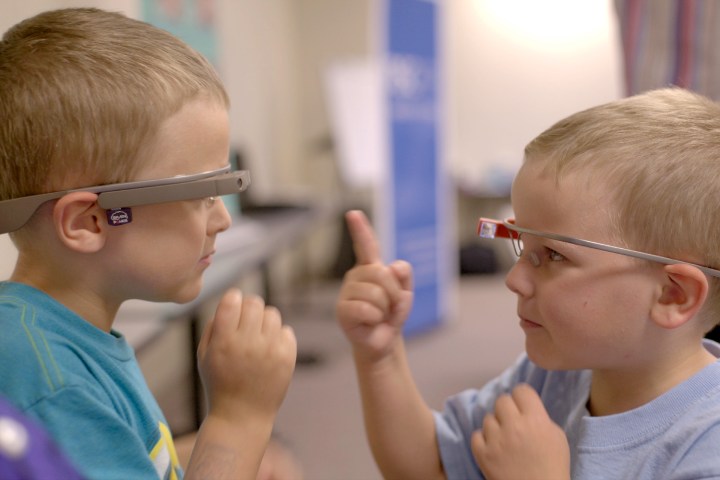Launched in early November, Brain Power’s Empower Me system is hailed as the world’s first wearable smart glasses platform that’s designed explicitly to help people with autism. A bit like the kind of “brain training” apps that have been popular for years, the technology functions as a “digital coach. It runs on Google Glass and provides various games — with a focus on aiding those on the spectrum in building important life skills.
“Some of the challenges we address include decoding the emotions of others, face-directed gaze, language, context-appropriate conversation skills, controlling behaviors, and general cognitive enhancement, among others,” Dr. Ned Sahin, founder and CEO of Brain Power, told Digital Trends. “Our applications are gamified and engaging, and run on smart glasses. Unlike with a tablet or phone, the person is looking up, and our software encourages social interaction with other people.”

Empower Me features a suite of apps. For example, in the kid-oriented Emotion Charades, players must identify different emotions in siblings, parents, or therapists and then match them with emojis. The emotions are recognized by the smart glasses using cutting-edge facial recognition technology, so the player gets to learn based on real live people, rather than avatars.
“People on the spectrum enjoy the engaging format of the applications we have designed, and parents truly appreciate the ‘connectedness’ they feel with their child,” Sahin continued. “We’ve studied this formally and scientifically during those clinical trials in children and adults across the spectrum. Results from stage one of our clinical trials are being published now, with many more papers to come.”
The technology has been in development for several years. It’s got some impressive names behind it. It’ powered by neuroscience developed at MIT and Harvard University, and was created in close partnership with Affectiva, the world’s leading emotion AI company, and X, formerly known as Google X.
Those interested in the Empower Me system can pledge support on Indiegogo. Prices start at $945 for the suite of apps, minus the Google Glass headset. Shipping is set to take place in August 2018.


